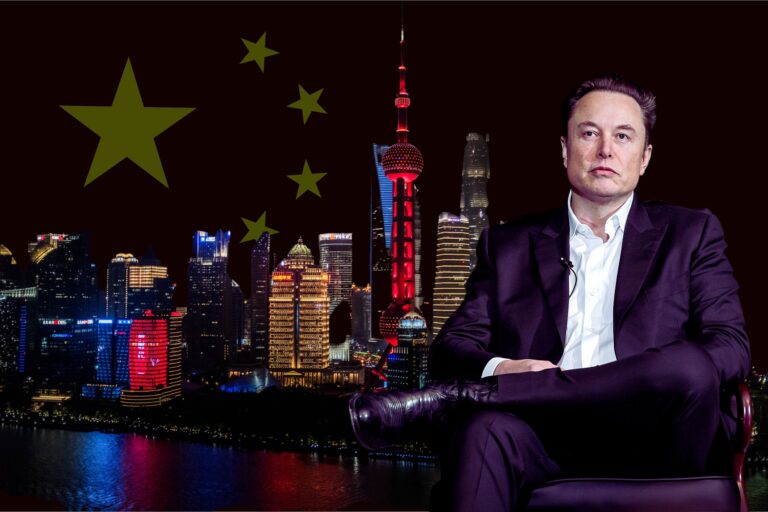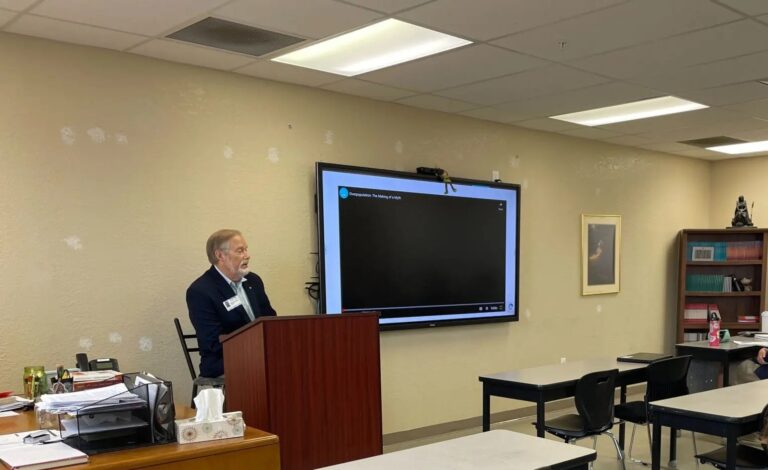Father Louis Aldrich, S.J. directs the Human Life Ethics Research center in Taiwan. The center is located on the campus of Fu-Jen Catholic University near the capital, Taipei. PRI President Steven Mosher was recently in Taiwan to film a segment of his EWTN series, and interviewed Father Aldrich about the center’s efforts to protect life there. The center is our newest Family Life International affiliate.
Steve Mosher: Tell us about the Human Life Ethics Research Center.
Fr. Aldrich: I founded the center some years ago. We don’t have a lot of money here, but we do have a number of good people working with us. Our main work is to try and change the abortion law. We have proposed a mandatory period of counseling and reflection. We don’t just say a waiting period because that is not what we mean. We want women to reflect on the possibility of not having an abortion. We also teach chastity to high school and college students.
Steve Mosher: Abortion was illegal in Taiwan up until the eighties. When was it legalized? And why?
Fr. Aldrich: Abortion was only legalized in 1984, and of course it was the same thing [you see everywhere.] The government first began pushing very strongly for contraception. They had this policy called “Two Children, Just Right.” They had bought into the population explosion myth.
I remember, when I was studying Chinese here, reading all the old government documents from the Kuomintang days. At that time the population was about 9 million. The government was saying that if the population increased at all. Taiwan would not survive. Taiwan would go into a depression and a kind of breakdown. Now today the population is 23 million and of, course Taiwan is a very prosperous place.
Steve Mosher: So, as the population has gone up, prosperity has gone up even faster.
Fr. Aldrich: In fact, when I came to Taiwan the population was really going up fast. Of course, that was when you had a very large young population. Now the population is getting older. The economy is not as good as it was 20 years ago for the same reasons that you see in Europe where you have an aging population.
Steve Mosher: Contraception led inevitably to abortion, did it not?
Fr. Aldrich: To abortion and then to abortion-on-demand. Part of this is the breaking down of the moral fabric of the culture. We teach a chastity-abstinence program here at the center also. We have eight teachers now who go into high schools and reach.
I remember when I came to Fu-Jen University in 1980, you never even saw a boyfriend and girlfriend holding hands. They wouldn’t dare. We’ve done research since and the rate of premarital sex among high school girls at that time was zero. Not even one per cent. Zero. Since the introduction of Swedish-style sex education, it is growing. And of course the more sex education they have, the worse it gets.
Steve Mosher: Tell us about the abortion law.
Fr. Aldrich: As happens sometimes with Chinese laws, the front part of the law seems very, very strict. It limits abortion to those who have genetic disease, to those who have been raped, and so on. The first five conditions are extreme cases. But the sixth condition, the last one, permits abortion if having the child would cause emotional distress or if it would influence — just influence — the woman’s emotional life, or influence family life. This means abortion-on-demand.
Steve Mosher: Absolutely. That is a carte blanche for abortion. Because anyone can say that having a child will influence their emotional life, and it’s probably true. And pregnancy can cause emotional distress.
Fr. Aldrich: Yes, if you don’t want the child a little bit.…
Steve Mosher: Tell us exactly how you would like to change the abortion law. Of course you would like to repeal it altogether, but what specifically are you working on as an intermediate step?
Fr. Aldrich: You know, right now completely changing the abortion law to forbid abortions is not politically possible. I mean, it’s just impossible. What we are trying to get at present is something we think that the population as a whole can accept but which is effective in reducing the abortion rate: a period of reflection coupled with counseling. This reflection period gives a woman time to reflect away from the immediate pressure either from the husband, the boyfriend, or the work situation at the moment to abort. It also gives her alternatives to abortion, and also tells her the after-effects of abortion.
Belgium has a six-day waiting period along with counseling and the rate of abortion of those who become pregnant is about 10%. In Sweden, the United States, Australia, New Zealand, and other countries that have no waiting period and no counseling, the abortion rate is about 25%. So it looks as if a reflection period can cut the rate of abortion in half, or more than half.
There is strong support for this. About 80% of the people believe there should be counseling before abortion and that there should be a waiting period. And the largest group, almost 50%, says the waiting period should be seven days. In our bill the period of reflection is six days. The problem is that there is a strong group of ideological feminists who have a Cabinet-level position in the government, and they keep blocking the bill. At first we did not know what was going on, but now we know, and are kind of directing things toward them. And the legislative branch says. “We can’t act until the executive branch’s draft comes down .…”
Steve Mosher: Ideological feminists are the same everywhere. For them abortion is a kind of secular sacrament. They are very loathe to give it up, because for many their entry into feminism is through the door of abortion. Through the door of what, we could call bluntly child sacrifice.
Aldrich: Yes. The truest level is what you just said. Now not everyone in Taiwan who is supporting abortion is so ideological about it. But the group that is holding it up is pretty radical and is heavily influenced by America. A lot of them were educated in America and believe the same [as ideological feminists in America], that abortion cannot be touched.
I’ve talked to some of-their leaders, and I’ve said, “Is there any condition under which you would give some consideration to the child in the womb?” They say, “The woman has the absolute right to decide whether she wants, or doesn’t want, the abortion.” So the child has zero status.
Of course, the culture is not that way. But the culture here, as in America, also contradicts itself. We’ve done surveys and asked people, “Do you believe the child in the womb is a human being?” Eighty-five percent will say yes. But then if you ask, “What if the child is mentally retarded or is a result of incest or rape?” Then they say the woman should have an abortion. So, like people everywhere, they forget.…
Steve Mosher: People can be very inconsistent, can’t they? They can hold two opposing values in their mind at the same time and switch from one to another. Even on a fundamental issue like life.
Fr. Aldrich: The Catholic Church is consistent in defending the sanctity of life because for the Church the unborn child is a human being. Radical feminists are consistent in holding that the child has no value. But most people are inconsistent. It you ask people, “Should abortion be totally free”, most people will say no, that there should he some restriction. And they are open to the argument that, if the child is a human being, then you cannot kill him. It’s very simple.
But the feminist side just goes crazy. They say, “If want to go and have a tooth fixed, I don’t need to have counseling or a period of reflection. Why are you opposing our basic right?”
Steve Mosher: Just as the United States exported population control to Taiwan in the 1960s, we also, in a way, exported radical feminism to Taiwan. And radical feminism allows no exceptions to the abortion absolute.
Fr. Aldrich: Here in Taiwan there are very few feminists who argue that abortion is good. But they know very clearly because they spend a lot of time thinking about it — that it they allow any kind of exception to their absolute right to abortion, then the tide of public opinion will start shifting against them. I mean, once you say that abortion should he limited, then people begin to ask, “What’s wrong with abortion, that it should he limited?” They start thinking about the child, and this changes their minds.
And, yes, this is an American export. I have been in meetings trying to convince people to limit abortion, and stop the spread of pornography and other social evils. And they just look at me and say, yes, but doesn’t this all come from America?
And have I to say that I’m sorry, but it’s true. It does come from America.
Steve Mosher: Of course, not everything that America exports is bad. You are an American export too, Father, and you are a force for good. You are doing all you can to support and defend human life through the center here. I am sure that the people of Taiwan thank you.
Fr. Aldrich: Some do.










